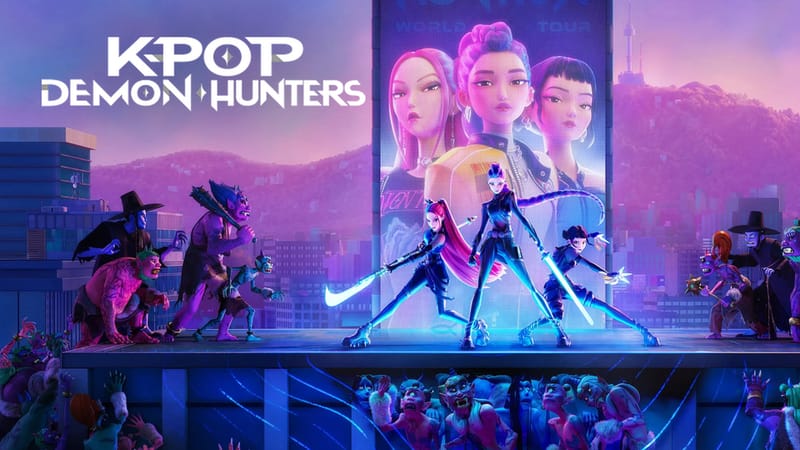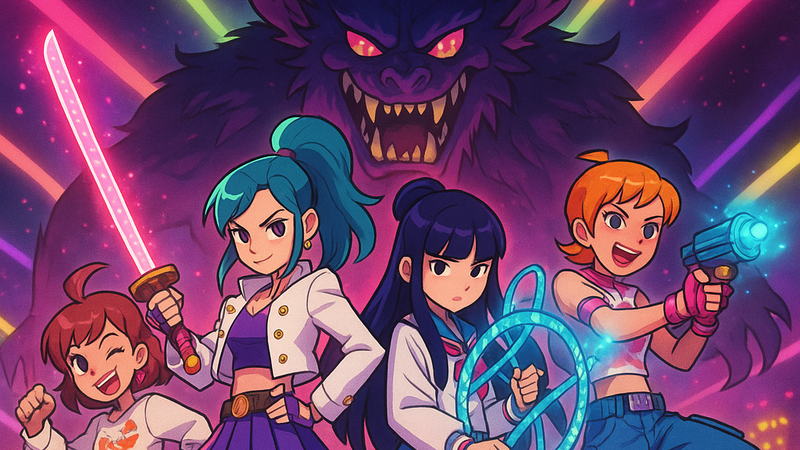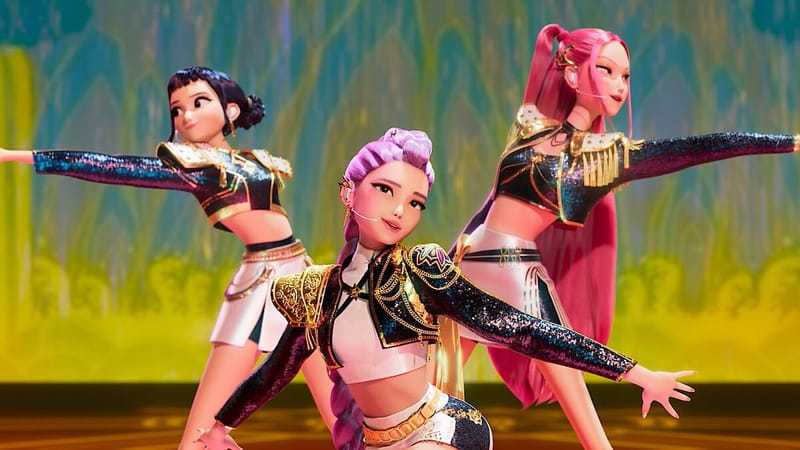Asia Rising, Rebels Singing and Netflix’s KPop Demon Hunters Toy Empire
The world is ready for more stories sung in other languages, powered by new cultural engines. And Netflix, it seems, is ready to sell you the dolls to go with them.
In his TED Talk, Neeraj Aggarwal paints a vivid picture of Asia’s culture and intellect stepping confidently into the global spotlight. From Punjabi pop icons storming Coachella to Southeast Asian fintech start-ups leapfrogging legacy banks, he argues that the East is no longer following trends; it’s setting them. Netflix’s global hit KPop Demon Hunters proves the point better than any PowerPoint slide ever could.
Netflix has struck partnerships with toy heavyweights Mattel and Hasbro to turn its record-breaking animated musical into a full-blown global franchise. The film, which has racked up more than 325 million views in just 91 days, is now Netflix’s most-watched original movie of all time, as reported by GamesRada
The Deal
Under the new partnership, Mattel will produce dolls, action figures, and collectibles based on the film’s main characters, starting in 2026. Hasbro will roll out plush toys, youth electronics, and even a special-edition Monopoly Deal: KPop Demon Hunters game, which will open for pre-order in October 2025, according to Entertainment Weekly.
For Netflix, this is about more than merchandising. It’s about proving that its content can transcend the screen, creating a cultural ecosystem that connects fans from Seoul to São Paulo.
The Cultural Shift
Aggarwal’s thesis—that Asian creators are shaping the global narrative rather than merely contributing to it—has never looked more relevant. KPop Demon Hunters’ runaway success is proof that audiences are hungry for authentic, unapologetically local stories with universal emotional hooks.
The film’s soundtrack, anchored by the viral single Golden from the fictional pop group HUNTR/X, topped charts in more than 25 countries and generated over 8.3 billion global streams. Netflix’s CMO, Marian Lee, called the release “a global fan frenzy” that showcased the company’s ability to “turn culturally specific stories into universal hits.
The Business Playbook
The strategy is simple but potent: build a franchise pipeline that starts with streaming and extends into products, music, and live experiences. Netflix’s experience with Stranger Things hinted at this direction, but KPop Demon Hunters takes it global.
- Cultural export meets commerce: The movie blends K-pop, anime aesthetics, and mythological storytelling, appealing to fans across Asia and beyond.
- Diversified revenue: The toy line opens new income streams at a time when Netflix’s ad-tier and gaming ventures are still maturing.
- Representation meets profitability: This is not cultural tokenism; it’s market validation that Eastern narratives can drive Western-scale revenue.
Loose Threads
There are, however, a few unresolved storylines. The toy industry is notoriously unpredictable. Streaming hits do not automatically translate into shelf-space dominance. Both Mattel and Hasbro are betting that KPop Demon Hunters has enough cultural momentum to sustain a multi-year franchise.
Then there’s the logistics. The rollout is slated for spring 2026, but supply-chain snags and localisation challenges could slow progress. The Guardian has reported that Netflix and Sony Pictures Animation are already in early talks for a sequel—good news for the toy makers if it materialises. Without it, the merchandise could lose momentum fast.
The Bigger Picture
As Aggarwal notes, Asia’s influence now spans not only technology and economics but also pop culture and values. The region’s creativity is shaping the next generation of global entertainment. KPop Demon Hunters encapsulates that shift: a story rooted in Korean pop culture, scaled globally through an American platform, and monetised through multinational partnerships.
Related reading
- KPop's Demon Hunters OST Just Outscreamed the Actual Pop Stars
- Inside the Sonic Sorcery of KPop Demon Hunters: How Sound Designer Michael Babcock Turned Pop Bea...
- Netflix's Lions‑Vikings most-streamed NFL game in US
Netflix’s move is both commercial and symbolic. It’s a recognition that the centre of gravity in entertainment is tilting eastward, and that future franchises may just as easily emerge from Seoul or Mumbai as from Los Angeles.
The world is ready for more stories sung in other languages, powered by new cultural engines. And Netflix, it seems, is ready to sell you the dolls to go with them.





